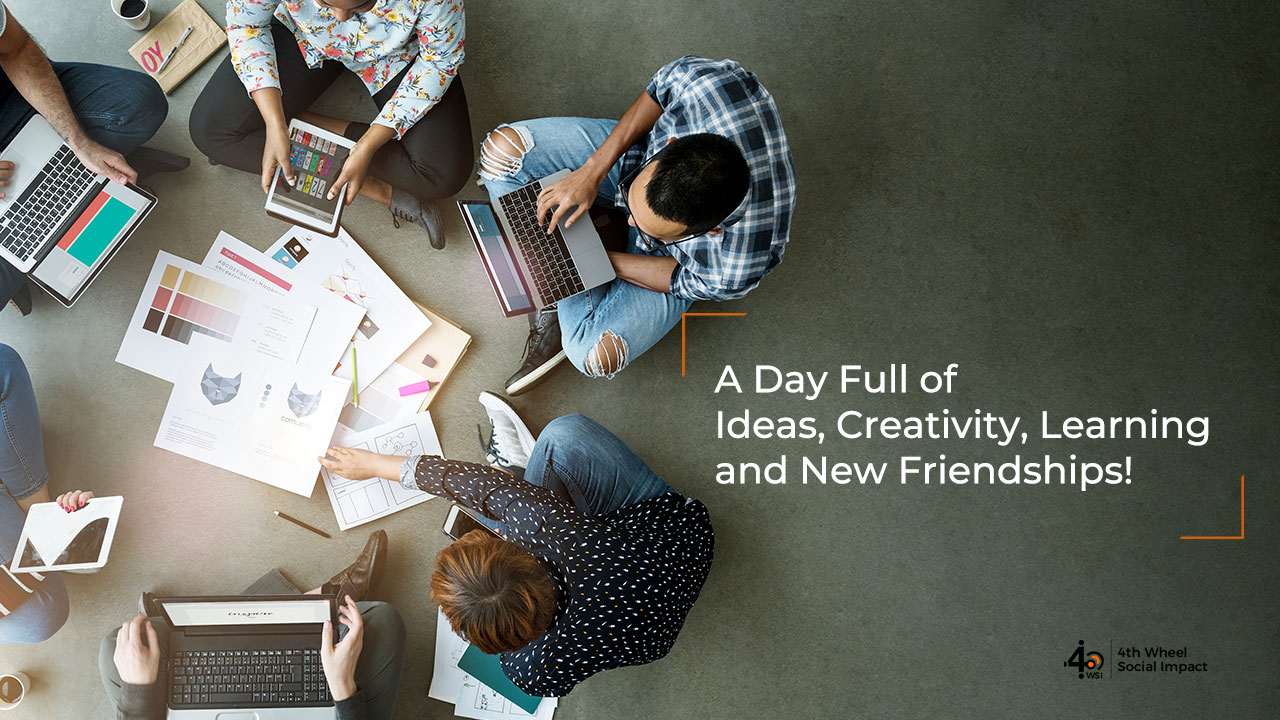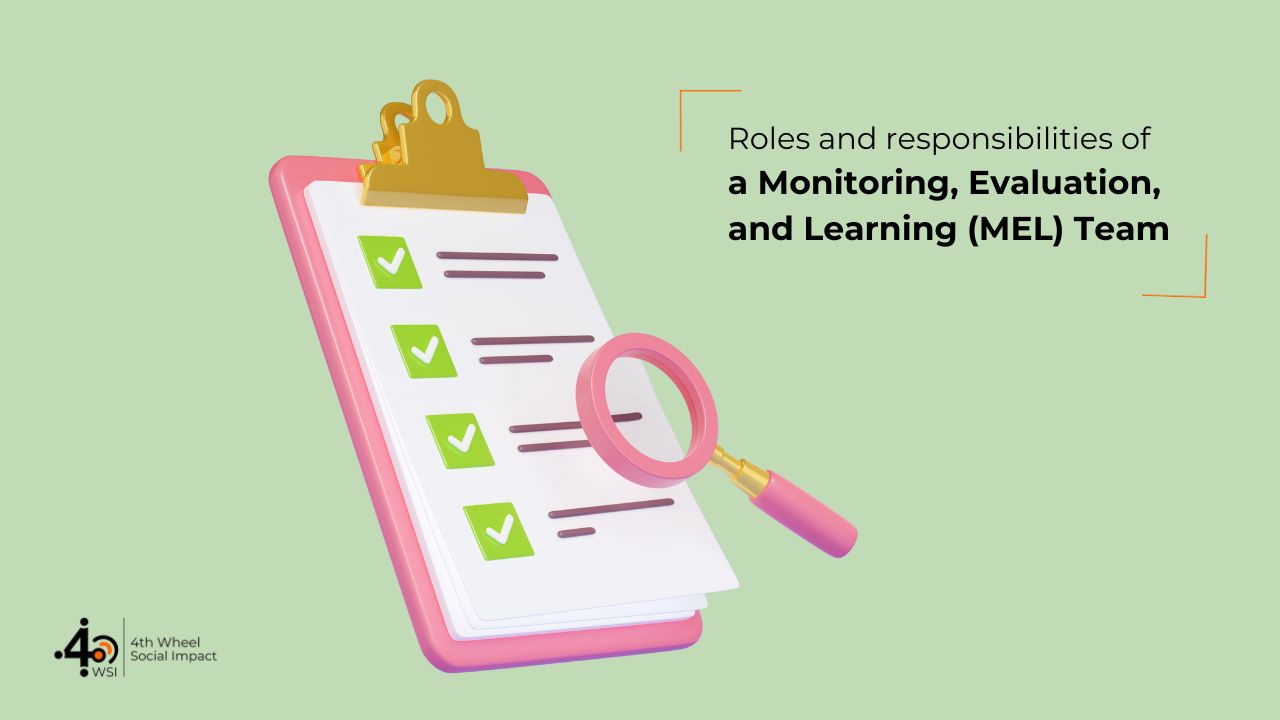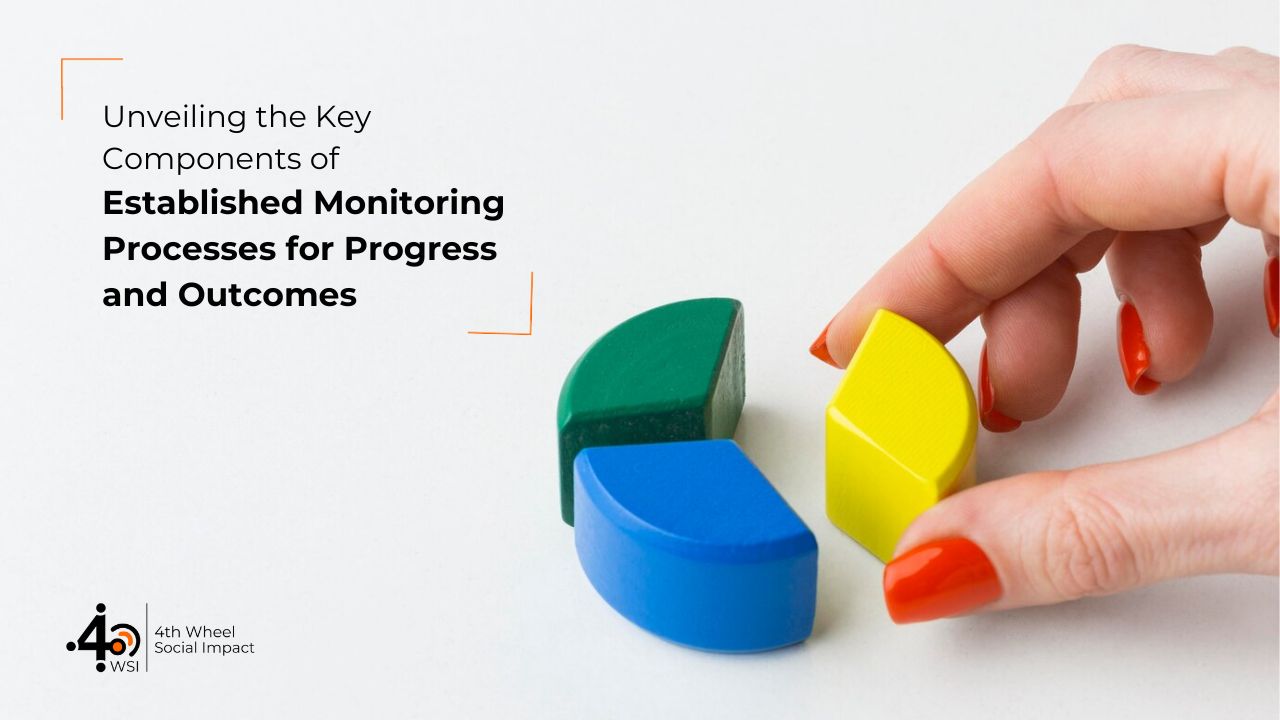To deliberate on the possible way forward to achieve the ambitious and inclusive 2030 Agenda and reflect on opportunities to integrate efforts to meet these aspirations, 4th Wheel has launched a workshop series on ‘Achieving the SDGs in India’.
Kicking off the event series on 26th November 2016, 4th Wheel, with support from the Swedish Institute, organised the first design-thinking workshop on SDG 17 – ‘Strengthening the means of implementation and revitalize the global partnership for development’.
The event brought together representatives and influential development actors from the public, private, and third sectors to jointly solve ground-reality challenges faced by organisations involved in social development efforts. The challenges deliberated on three key themes of Data, Technology, and Partnerships. Three ‘Knowledge Leads’ from three different organisations were invited to facilitate the workshop and share their organisation’s stories which served as case studies for the three themes.
Aakash Sethi, founder of Quest Alliance presented the challenge of ‘moving from output to outcome monitoring and evaluation of social programmes’. Suresh Rao, Head of Planning & Resources from Tata Power Community Development Trust (TPCDT) facilitated the discussion on incentivising and strengthening partnership building in the social development sector. Niraj Jani, Executive Director of SAATH Livelihoods put forward the challenge of identifying and incorporating technology to strengthen social programmes.
The workshop’s main objective was to enable participants to “Recognise problems but Think solutions”. We deliberately chose an unconventional methodology, as we wanted to bring freshness, innovation, and interdisciplinary collaboration to the social development sector. We wanted to move from a conventional conference setting (which enables only one-way communication from speakers to attendees) to a workshop methodology where every attendee has a voice and is enabled to express their views and opinions on solving social problems.
For this, we applied the design-thinking methodology, which is not exclusive for designers but for all kinds of stakeholders, that helps people understand and develop creative ways to solve a specific issue. This method enables to overcome fixedness and limitations caused by hierarchy and formality and to leverage the potential of creativity. Participants were randomly assigned to three groups (data, technology, and partnerships) at the start of the day. Each group was expected to solve one challenge.
In the first stage ‘Empathise’, participants built a persona. This stage helped participants to move away from their preconceived notions and see the problem from the persona/beneficiary’s perspective. The second stage of ‘Identify’ helped participants to specifically define the challenge based on the persona they have created. ‘Ideate’ was the third stage, which involved several rounds of post-it dumping and brainstorming. The goal was to generate as many ideas as possible. Ideas were then clustered according to the varying themes. At the end of this phase, each of the three teams voted for the top two ideas that were generated during the brainstorming. The fourth stage of ‘Prototyping’ was divided into two parts. The first part involved developing a mission-model canvas. Secondly, participants ‘built’ their solutions in a creative manner by using clay, lego, newspapers, and magazines, role plays, poems, stories, etc. The final design thinking stage called ‘Test’ helped participants to solicit feedback about the prototypes they created from the ‘Knowledge leads’ and the audience.
Besides coming up with solutions that can actually be applied in the field, one major aim of the workshop was that all participants enhance their creativity and innovation potential, exploring solutions that are useful to their organisation as well.
We hoped to reinforce the need to move from debating problems to coming up with solutions, which translate into impactful and scalable ideas. We shall be reaching out to participants over the next few months to trace if these conversations did translate into learning and action. We, at 4th Wheel, are back to planning the next workshop which will incorporate all suggestions and feedback received at the workshop and after.
The 4th Wheel team thanks everyone who made Saturday, 26th November 2016, a day full of ideas, creativity, learning, and new friendships.
Please find our picture gallery here https://goo.gl/hsVktf




